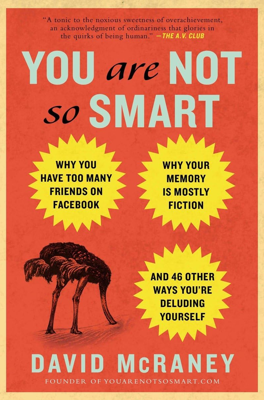Self-Serving Bias
Misconception vs. Truth
Misconception:
You evaluate yourself based on past successes and defeats.
Truth:
You excuse your failures and see yourself as more successful, more intelligent, and more skilled than you are.
Historical Beliefs and Modern Findings
- Early psychology suggested people had low self-esteem and inferiority complexes.
- Modern research indicates most people have inflated self-esteem and think highly of themselves daily.
- This tendency helps avoid stagnation and paralysis by fear and doubt.
Self-Serving Bias
- You accept credit for successes but blame external factors for failures (bad luck, unfair rules, etc.).
- You view past mistakes as made by a former, less competent version of yourself.
- Studies by Anne Wilson and Michael Ross (2001) show people believe they have improved significantly over their past selves.
Illusory Superiority
- Most people think they are above average in various attributes (competence, ethics, friendliness, intelligence, attractiveness, etc.).
- This phenomenon is known as the illusory superiority effect.
- You believe you are better than others, while seeing others as part of the average population.
Egocentricity and Subjective Analysis
- Your subjective worldview leads to egocentric judgments about your abilities and status.
- Research by Justin Kruger (1999) showed task difficulty priming affects self-assessment, leading people to rate their performance as above or below average based on perceived task ease.
Social Comparisons and Popularity
- You compare yourself primarily to friends and peers, not distant figures of success.
- Studies by Zuckerman and Jost (1993) on self-evaluation maintenance theory indicate you believe you are more popular than your peers.
- People generally think they have more friends and social connections than others.
Inflating Positives and Minimizing Negatives
- You are predisposed to accentuate your positives while overlooking your faults.
- Self-serving bias helps maintain self-esteem by favoring positive self-assessments.
- Failure is often forgotten, while successes are magnified and shared.
Practical Implications
- Self-serving bias and illusory superiority serve to keep you motivated and protect your psychological well-being.
- Recognizing these biases can help manage unrealistic self-perceptions and improve self-awareness.
